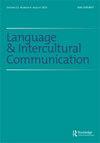工业革命4.0及其对企业组织和管理演变的影响
IF 2.2
1区 文学
0 LANGUAGE & LINGUISTICS
引用次数: 0
摘要
第四次工业革命或工业4.0是指工业的演变,特别是在制造业和链式生产领域。该行业的行政管理决策对技术、数据管理和分析、数据安全、风险管理、法规遵从性、验证和人力资源实践等方面都有重大影响。人工智能、传感器、企业级解决方案平台、机器学习等都将在第四次工业革命中得到广泛应用。在工业4.0中,外部和内部物联网(IoT)数据量预计将扩大,从而导致信息的急剧转变。工业4.0将导致大量数据实时流向质量专家,这些数据将同时来自各种来源,需要智能利用以实现快速有效的决策。管理人员和质量控制人员必须做出必要的决定,以提供向数字技术的平稳过渡,这将提高制成品和服务的效率和质量。作为第四次工业革命的一部分,企业将被要求采用有效的风险管理战略,通过让机器学习和人工智能提供最好的服务,提高产品质量和运营效率。因此,风险管理团队必须制定计划,以确保这些策略得到适当的实施。此外,质量管理者必须确保与第四次工业革命相吻合的质量4.0得到有效实施。之前关于工业4.0如何影响管理决策的研究一直缺乏且不令人满意。因此,本文试图对第四次工业革命的管理意义提供一个完整的评估。本文章由计算机程序翻译,如有差异,请以英文原文为准。
Industrial Revolution 4.0 and its impact on the evolution of the firm’s organization and management
Fourth Industrial Revolution or Industry 4.0 refers to the evolution of industries, particularly in the manufacturing and chain production areas. Executive managerial decisions this industry have a substantial impact on technology, data management and analytics, data security, risk management, regulatory compliance, validation, and human resource practices, among other things. Artificial Intelligence, sensors, enterprise-level solution platforms, and Machine Learning will all be used extensively in the fourth industrial revolution. In industry 4.0, the volume of external and internal Internet of Things (IoT) data is expected to expand, resulting in a drastic shift in information.
The IR4.0 will result in an abundance of data flowing to quality experts in real-time, and this data will come from various sources at the same time, necessitating intelligent utilization to enable quick and effective decision-making. Managers and quality control employees must make the necessary decisions to provide a smooth transition to digital technology, which will increase the efficiency and quality of manufactured goods and services. Companies will be required to employ effective risk management strategies as part of the fourth industrial revolution in order to improve product quality and operational efficiency by allowing machine learning and Artificial Intelligence to give the finest services. As a result, the risk management team must develop plans to ensure that these tactics are implemented properly.
Furthermore, quality managers must ensure that Quality 4.0, which will coincide with the fourth industrial revolution, is implemented effectively. Previous research into how Industry 4.0 affects managerial decisions has been lacking and unsatisfactory. As a result, the article tries to provide a complete assessment of the fourth industrial revolution’s management implications.
求助全文
通过发布文献求助,成功后即可免费获取论文全文。
去求助
来源期刊

Language and Intercultural Communication
Multiple-
CiteScore
3.00
自引率
47.40%
发文量
50
期刊介绍:
Language & Intercultural Communication promotes an interdisciplinary understanding of the interplay between language and intercultural communication. It therefore welcomes research into intercultural communication, particularly where it explores the importance of linguistic aspects; and research into language, especially the learning of foreign languages, where it explores the importance of intercultural perspectives. The journal is alert to the implications for education, especially higher education, and for language learning and teaching. It is also receptive to research on the frontiers between languages and cultures, and on the implications of linguistic and intercultural issues for the world of work.
 求助内容:
求助内容: 应助结果提醒方式:
应助结果提醒方式:


